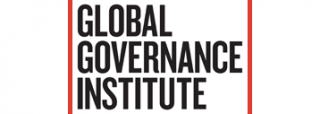A Referendum on Trump: Policy and Politics After the 2018 US Midterms Elections
10 October 2018
Henry Wilson (MSc Global Governance and Ethics) on a SPP Policy and Practice Seminar with Dr Colin Provost, Dr Thomas Gift, Dr Sherill Stroschein and Dr Nadia Hilliard.

Referendum, an OxfordDictionaries.com top 5 trending post-Brexit word, is now greeted in the UK by despair or triumphant cheers (depending on one’s EU position) or weary moans by the many who have heard quite enough. But, alas, there is another pseudo-referendum taking place over the pond, otherwise known as the US Midterm Elections. The semantics, however, belie what Dr Colin Provost described on Thursday evening as a ‘referendum on the President’, a vote of confidence (or no confidence) by the public halfway through Donald Trump’s tenure.
The 2018/19 Policy and Practice Seminar Series curtain raiser was always going to be one of great passion and scrutiny as the American public prepares to offer up opinion on what speakers described as one of the most volatile and polarising administrations in recent memory. Provost talked of how sweeping environmental policy, which under previous Presidents would have received support on both sides of the House, had become overly politicised, Dr Thomas Gift found that the political environment is more polarised now than in 2001 under the presidency of George W. Bush, and Dr Nadia Hilliard referred to ‘intense partisanship’ in American politics.
It was Dr Sherill Stroschein, though, who provided the most alarming analysis of America’s extreme polarisation, likening President Trump to Serbia’s Slobodan Milošević, a dictator whose aggressively expansionist leadership oversaw the ethnic cleansing in Bosnia and the bloody Yugoslav War, and who later faced charges of crimes against humanity, a certified crib sheet from hell. The ‘intentional chaos’ of Trump’s administration and hardening of identity categories reminded Stroschein of Bosnia during the 1990s. Historically, highly polarised societies often experience violent conflict, as happened in Yugoslavia, which points to the importance of taking the current situation in America seriously.
Is there even a chink of light at the end of the tunnel? None of the speakers offered anything other than bleak predictions for both the short and long-term. Stroschein declined to offer any direct prediction for the outcome of the mid-terms, although her comparative analysis of America and Bosnia indicates a potentially dire situation approaching. She also reminded the audience that in low turnout elections, the most ‘revved-up’ base tends to win, and the Brett Kavanagh investigation appears to have angered Trump’s base, which could lead to very few seats lost by the Republicans. Provost, Gift and Hilliard made, in Gift’s words, ‘modest’ predictions for the effect of the mid-terms. All three followed a similar tact; regardless of the outcome, little will change, except perhaps the rigour and intensity of the numerous investigations into the administration (such as the Mueller probe).
Another interesting takeaways from the lecture was Hilliard’s point that, irrespective of your position on his actions, Trump is yet to do anything illegal. However, his constant transgression of social norms is not inconsequential. As a result of Trump’s identity politics, Americans have already become deeply entrenched in opposing camps, with many feeling safe only around those who are similar to them. Institutionalising and legitimising cruelty towards ‘other’ groups and individuals may lead to an arena akin to that of Yugoslavia in the 1990s, if it remains unfettered.
Stroschein’s apocalyptic comparison hung over proceedings, and seems the most important takeaway. Trump, and the danger he poses, must be taken seriously. Laughing at his tweets and apparent incompetency is a cheap laugh, but he holds one of the most powerful offices on the planet. We do not want another Bosnia.
 Close
Close


